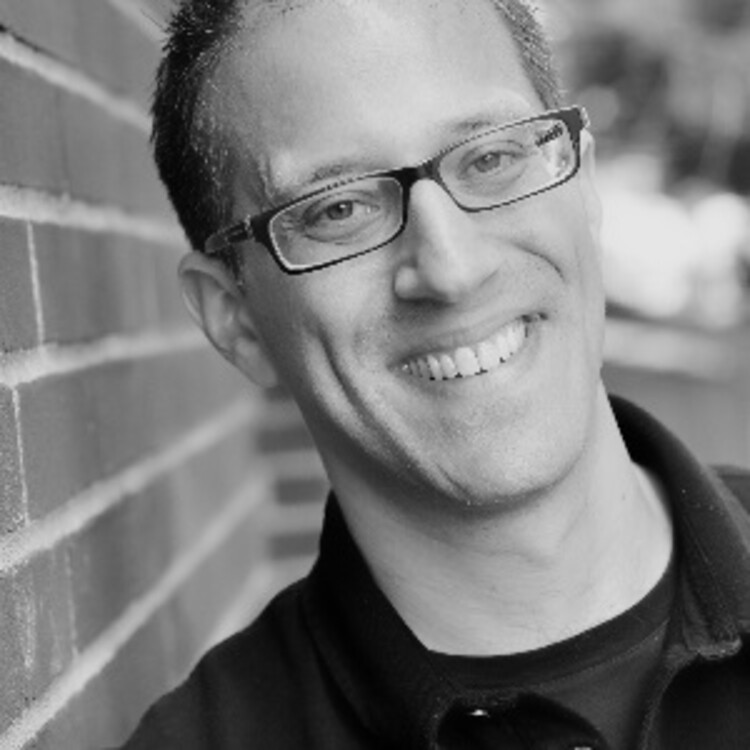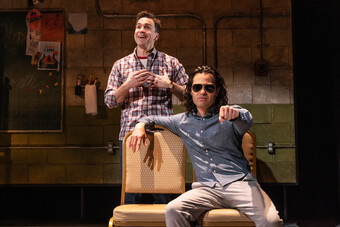Surviving Rejection Season
Standing over a fifteen-foot birdie putt on the last hole of the 2008 US Open, Tiger Woods had to make it. If he made it he’d get into a playoff. If he missed, he was out.
“I kept telling myself: Make a pure stroke,” he said afterwards. “If it bounces in or out, so be it, at least I can hold my head up high and hit a pure stroke.”
He made the putt, of course, and he went on to win the US Open, but I’ve often thought about the parallel universe in which Tiger missed the putt. Could the runner-up Tiger say to himself, “I can live with this”? As long as he made the “pure stroke,” could he relax, not get into his head, not turn over in his mind again and again the things he should have done differently?
I look to athletic minds for answers, or at least for parallels. What is the playwright’s version of the “pure stroke”? How do we insert ourselves into the world in such a way that we don’t lie in bed at the end of a day—or, so much worse, wake up in the morning—trying to figure out how we can be more commercial, more impressive, more like Successful Playwright X?
But in reading Pink I realize that very often when I’m selling myself and my work—when I’m applying for stuff—I switch from finder mode into solver mode. I am, suddenly, trying to “get it right.”

The playwright (and any artist) must be both creator and salesperson. I’ll leave it to another HowlRound contributor to define the “pure stroke” in the act of creation. Here I want to define it in the act of salesmanship.
This will be harrowing for me, but I must offer up my own act of poor salesmanship. A couple of years ago I applied for a playwriting fellowship for which I had, in the two prior years, been a semi-finalist. This is a very competitive fellowship, a year-long program of support for one, and only one, playwright. My third application contained this proposal, a dodgy putting stroke, one I cannot live with:
In my year as your fellow, I want to set up a small operation where I approach individuals and ask them for long-term (five years or more) financial support—for me and for my predecessors [i.e., each of the organization’s previous fellows]. It won’t resemble a traditional fundraising/development drive because we will promise Wealthy Person X virtually nothing to show for his/her money. Only the satisfaction of acting as patron for an artist s/he believes in. All I’d require is a telephone line and office supplies. And maybe a list of your own supporters who you think might bite, but I would spend less time targeting people who have a track record for supporting the arts and more time targeting wealthy people who may never have supported art and artists. I’m thinking of somebody like John Aglialoro, CEO of Cybex International, a maker of exercise equipment. He’s underwriting the making of a film adaptation of Atlas Shrugged (oy) and seems like the kind of personality who would respond to such a bold proposal. Or Philadelphia Eagles owner and one-time movie producer Jeffrey Lurie. People like this have probably never even been approached for this kind of philanthropy.
I shudder to reread it. When I was rejected right away I was relieved. Irritated at first but, quickly, relieved. I didn’t want to do any of what I’d proposed. John Agliarloro? Asking him for money would’ve made me feel like a whore. And why was I so determined to set up a system whereby former fellows could benefit? I wanted their gratitude, their approval. I wanted the granting organization to see that I shared its entrepreneurial vision. It was all a posture. Only that parenthetical “oy” expresses my actual personality.
In the preceding two years, the years when I made it to the semi-final round, I didn’t do anything so lofty. I simply described the play I wanted to make during the fellowship year. In both applications I said, “I want to do for theatre what William Styron’s Darkness Visible did for literature.”
Now that’s a pitch. (Or maybe I should say: a pure stroke.)
Recently I was able to see this particular series of applications—and so many of my other applications, my acts of self-salesmanship—with a new clarity, thanks in part to Daniel H. Pink’s book To Sell Is Human: The Surprising Truth about Moving Others.
Pink describes a sociological experiment that, it seems to me, is immediately relevant to the modern playwright’s job:
In the mid-1960s, two soon-to-be-legendary University of Chicago social scientists—Jacob Getzels and Mihaly Csikszentmihalyi—began studying the elusive subject of creativity. For one of his first investigations, in 1964, Csikszentmihalyi went to the nearby School of the Art Institute of Chicago and recruited about three dozen fourth-year art students for an experiment. He brought them into a studio that had two large tables. On one table were twenty-seven objects, exotic and mundane, that the school often used in its drawing classes. Csikszentmihalyi asked the students to select one or more objects from the first table, arrange a still life on the second table, and produce a drawing of the result. The young artists approached their task in two distinct ways. Some examined relatively few objects, outlined their idea swiftly, and moved quickly to draw their still life. Others took their time. They handled more objects, turned them this way and that, rearranged them several times, and needed much longer to complete the drawing. As Csikszentmihalyi saw it, the first group was trying to solve a problem: How can I produce a good drawing? The second was trying to find a problem: What good drawing can I produce?
Then Csikszentmihalyi conducted a mini art show of the student creations and asked a panel of art experts to evaluate the works. (These experts didn’t know what Csikszentmihalyi was studying, nor did they know the source of the art.) When he tabulated the ratings, Csikszentmihalyi discovered that the experts deemed the problem finders’ works far more creative than the problem solvers’. In 1970, Csikszentmihalyi and Getzels tracked down these same artists, now out of school and working for a living, to see how they were faring. About half the students had left the art world altogether. The other half was working, and often succeeding, as professional artists. The composition of that second group? Nearly all were problem finders back in their school days. When Csikszentmihalyi and Getzels followed up again in the early 1980s, they discovered that the problem finders “were 18 years later significantly more successful—by the standards of the artistic community—than their peers” who had approached their still-life drawings as more craftsmanlike problem solvers.
Almost every playwright I know is, when they’re conceiving and writing a play, a problem finder. They go into the room, they look around, they take their time, they wait for a vision to present itself. Here and there I’ve encountered playwrights who are problem solvers when they write plays. They’ve read every how-to-write-a-play manual on the shelves of the Drama Book Shop, and they think that makes them a playwright. But their thinking is goal-oriented. They’re trying to “get it right.” To please some amorphous entity who decides whether something “is” or “is not” a play, whether it functions.
It’s easy to look down my nose at those writers and to be perversely (sadistically?) gratified that if Getzels and Csikszentmihalyi are right, their careers won’t go very far. But in reading Pink I realize that very often when I’m selling myself and my work—when I’m applying for stuff—I switch from finder mode into solver mode. I am, suddenly, trying to “get it right.”
That sounds pure, but the two identities are not discrete. Any accomplished artist is part salesperson. Even the art object sells itself.
My friend Ken Weitzman, a playwright who teaches at Indiana University, on this topic:
In the past few years I have gained some experience on the other side, serving on a few selection committees. I also have my grad students work on artistic statements and statements of objectives for each of their plays. I find I have a particular taste when reading artistic statements. I am turned off by anything that smacks of salesmanship. But this is perhaps more related to the applicant’s skill or style than intent. It’s all selling after all. I do respond to folks who are honest, honestly in-process and don’t overinflate the importance of their play or their place as a writer, or whether or not they’re breaking new ground. So maybe those folks fit into the “problem solver” category when it comes to their own marketing materials. At the same time, it is helpful for a playwright to categorize her/himself. It makes the conversations easier for the selection committee and it helps place the play in a spectrum of plays that will be chosen as part of the organization’s “season.”
All of which leads me to wonder: is the problem solver mode ever useful? Should we constantly eschew it? Applications to new-play summer camps—all those “statements of artistic purpose”—became a lot easier and more pleasant for me when I began to see them as an opportunity to write something beautiful. (The same motivation behind writing the play itself.) Every chance to write is a chance to write something beautiful. What if we approached applications from that point? What if, even when called upon to sell ourselves, we instead use it as an opportunity to create more art? To continue our work as artists, rather than to put on the cap of the salesperson?
That sounds pure, but the two identities are not discrete. Any accomplished artist is part salesperson. Even the art object sells itself. When a play tries to give its audience a satisfying experience—when a work of art seeks to entertain—isn’t that a sales job? Just as an outright sales pitch includes and incorporates the art (product) it’s selling, so too does the product per se ask to be bought.
Wrestling with this equation, I e-mailed a handful playwright friends and asked a series of questions about coping with rejection. I asked, “Do you agree with me that rejection is a lot easier to handle when you’ve done a better (fuller?) job of presenting yourself/selling yourself? What are your strategies for that?” I was asking: How do you make the pure stroke?
But a couple of answers surprised me, and they point to the breakdown of the sports/arts analogy. They point to how differently we all process this common experience, this cycle of sales and rejection.
One unnamed playwright: “I think it’s harder to handle rejection when you’ve put your best foot forward because it’s more personal and you can’t make excuses.”
And another playwright friend: “I find rejection harder to deal with when I’ve done a better job marketing myself. Because then I find myself utterly baffled and feel like I live on an alien, distant shore and have no idea about what’s actually desired or valued.”
It’s possible Tiger Woods was fooling himself with that “pure stroke” business. It’s possible that, if he’d missed the putt, he wouldn’t have been able to sleep at night, no matter how purely he hit the ball. Still, I envy the athlete because he has the good fortune of a quantifiable goal to strive for—Tiger’s ball was either going in or it wasn’t. For the artist, “winning” and “losing” are much more nebulous terms. Unhelpful ones, perhaps. But we too are in a competition with each other. We try not to look at it that way—it’s distasteful, this notion that I have to “beat” other playwrights for a production slot—but it’s real. For me the “pure stroke” philosophy is how to live with that difficult reality.












Comments
The article is just the start of the conversation—we want to know what you think about this subject, too! HowlRound is a space for knowledge-sharing, and we welcome spirited, thoughtful, and on-topic dialogue. Find our full comments policy here
Folks, learn your 'craft' and do your work. Your job is to do your best and find those who share and esteem your vision, period. You will know them when you meet them. You've just got to go out and meet them. What is described here borders as a treatise on how to be more self-absorbed. It smacks of rationalization/self-justification regarding what?--the pangs we feel for others and ourselves at times we succeed or fail? Certain people must have a lot of time on their hands. The pure stroke nonsense described is pseudo-Gladwellian self-help twaddle and primer for those who wish to follow a zero sum approach to art. Its subtext seems to be less about application and more about calculation. Our theater is already overrun with huckster-like problem finders looking for some 'profitable' niche or bent that end of day only promotes self-censure among artists. The results are usually half-baked notions and half-realized presentations sans craft that are far from about life and largely careerist in thinking. The lack of bona fide problem solvers accounts for the shabby state our theater is in and explains why attendance is dwindling now more than at any other time. These 'get ahead' musings and their ilk will I suspect in the long run only work to keep people from writing what is honest, real, interesting or beautiful.
thanks for this. and yeah i hear ya...but we also have to take into account that regardless of how good the pitch is...there is a pool of playwrights (MFA or not) that the industry deems as 'the hot ones' and so those playwrights get first dibs...i'm not even sure if their work/applications get the same level of scrutiny as those who are not hot get...but because they are 'hot', the industry makes room, exceptions and space for their pitches. Whether we like it or not, there is a cue, my friend and sometimes even submitting your best work cannot withstand this 'they don't want to fk you until SOMEONE ELSE finds you sexy' practice that is so pervasive in our lil community. It sucks. And that's why i say, yeah, submit, write your best work...but be prepared to be turned down for no other reason than you NOT being the 'hot shyt' and then reevaluate. How badly do you want to be a theater maker? If it's a big gnawing in your gut...GO MAKE THEATER. Do it on your terms...but don't wait for this industry or until the industry decides your hot and 'fu ckable'...go out there and find some hungry actors, a raw space and do yo shyt. You can writer the best pitch EVER and STILL not get in....and many times that has NOTHING to do with yours skill, talent and promise. Let's stop giving the gatekeepers the keys to our success. Let's get some keys made and hold them ourselves.
I'd rather submit my play "blind" because I feel that, since I don't have an MFA from a prestigious school, the people screening at most institutions will eliminate the play without reading the play. And I understand it, they probably get so many submittals (one program said "we got 950 plays!" - who could read that many plays?) So MFAs seem to be a short-hand marker for pre-determining quality. Yet I have been produced and have come up through the ranks of working in theater as an actor and assistant director. When I write these artistic statements of purpose I tend to write from the heart -- I write plays for multi-cultural casts, I write plays with challenging parts for actors and actresses, I know theater from doing a heck of a lot of it and working through the productions of my own plays and others, I love to collaborate with other theater artists. I will keep entering these competitions, yet I am realistic that it's unlikely my plays, or maybe even the statements are even read by anyone, when they see there's no MFA. When people do read the plays I do get produced, so "blind" submittals seem to be the way to go for those of us who came up through the ranks.
On the other hand, there are many playwrights with the degree who are still rejected quite frequently. (I'm sure they feel like this: http://cdn.memegenerator.ne... If it makes you feel any better, as a dramaturg, I rarely even read the playwright's name when I dive into a script, especially if there are a bunch to get through.
Nice, except that there are plenty of retreats, development programs, and yes, theatre companies, that ask for your academic institution, degree or letter of reference from an academic who knows your work-- they are the minority, but they are also very visible.
I think this is fantastic. I really love the notion of just sitting down to "write something beautiful". As someone who is about to write a bunch of applications for things like grad school, I find it to be a really, really helpful notion.